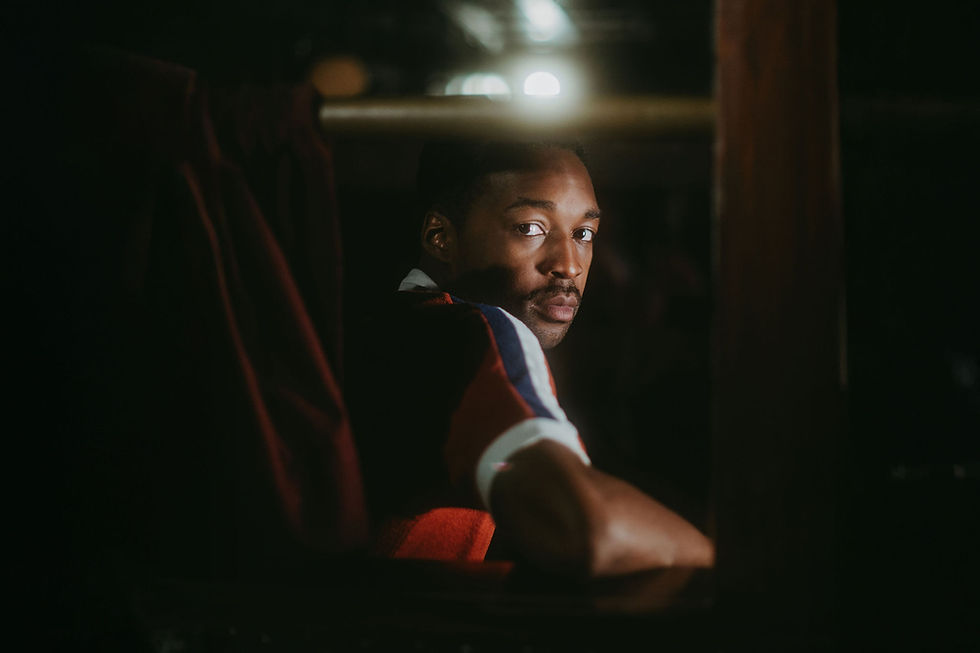THE RAILS – OTHER PEOPLE: REVIEW
- Jul 20, 2018
- 3 min read

THE RAILS
Other People (Thirty Tigers)
Kami Thompson might have heard a thing or two at home over the years about what it’s like to play with traditions in a contemporary setting. Her mother, Linda, and her father, Richard, took on the idea - and the antagonism from those who reckoned they understood the “right way” and knew this was not it – in the 1960s and ‘70s.
James Walbourne might have gleaned some truths about working between English and American styles, as the go-to guitarist for the likes of Chrissie Hynde’s Pretenders, Ray Davies and Edwyn Collins.
(You could reckon too that Walbourne and Thompson, whose previous album as The Rails came out in 2014, have learnt a reasonable amount about what it means to be compared with people you played with/lived with when all you want is to be seen in your own light. Sorry!)
Between them then there’s more than enough background, or influences if you prefer, to take the basic elements head-on and explore them in depth (as they did with their debut, Fair Warning which hewed close to the kind of album Linda and Richard Thompson made in the 1970s), and then to throw open the doors to a bigger range of sounds and styles without losing the starting point. Which is what they’ve done with Other People.
With all original material this time and the album recorded in Tennessee, Thompson and Walbourne veer back and forth between electric folk, folk rock, country rock and even the shadows of country. There’s a tougher texture to Other People than was found in Fair Warning, a bit more grunt maybe in the instrumentation, but in truth it’s variety avoids any kind of easy delineation.
If you can hear The Unthanks in the traditional vocal tones of Mansion Of Happiness, and Linda Thompson’s earthy sadness in Hanging On, you can also hear the entwined nature of the sadly lost country duo Civil Wars in Leaving The Land and Lucinda Williams’ natural emotion in Low Expectations.
If Australia feels like a song which must have been sung exactly this way around a piano in 1825 (and then again by Eric Bogle 150 years later) then Late Surrender is pure southern jangle rock, the thwack of Cody Dickinson’s drums a declaration, Drowned In Blue offers the image of The Beatles of 1968 as a folk rock band, and Shame is a hybrid of folk and indie pop.
Throughout those songs Walbourne’s guitar work keeps finding new ways to cut through – not afraid to make like Richard Thompson in his plangent English form, but like him not running from the American tones that make the link between folk and country.
Lyrically there are no men shanghaied onto ships or lords and maidens cavorting with tragic ends, but traditions aren’t shucked completely because the stories of a city turning its face to working men and women (Cally and Bricks And Mortar), of individuals making bad moral choices (Other People and Shame) and society doing much the same (Hanging On, Leaving The Land, Mansion Of Happiness) are but updates of folk song norms. That is, this is how people behave and have always behaved.
The final element of The Rails is the way the voices work together, sometimes in harmony, sometimes in principally solo settings, but more often as complementary elements. Thompson’s voice has an aged element already, not so much lived in as lived through; Walbourne’s pitches up with more youthfulness, allowing it to sound more likely to be bruised by some of the disappointments – in people, in life – it encounters.
The voices then operate in similar ways to everything else on this album: bridging ages and forms – and formats – in a way that suggests lessons learnt, at home and abroad.






Comments